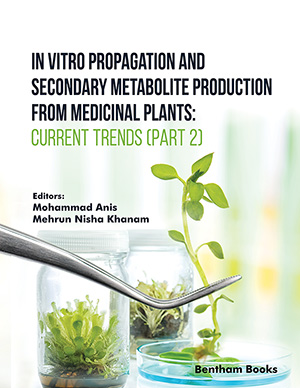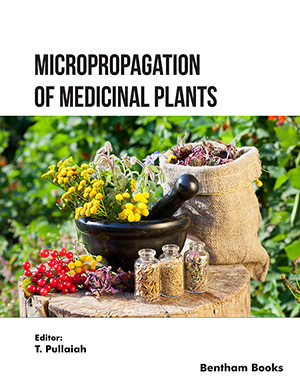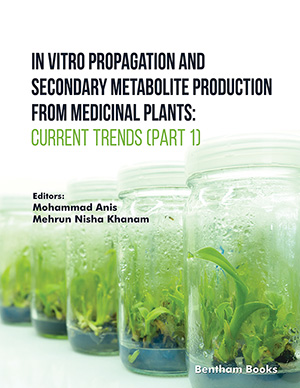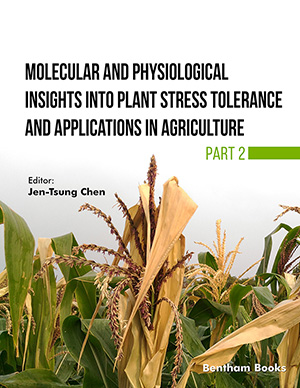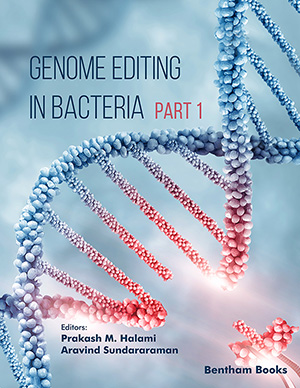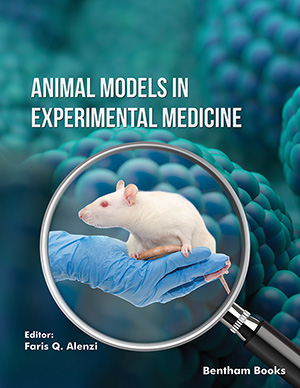Abstract
Cancer is a multifaceted disease. Our deepened knowledge about genetic and biological mechanisms of cancer cells presents an opportunity to explore the inter-individual differences in the body’s ability to metabolize and respond to different nutrients. It is becoming progressively more understandable that the deregulation of several signaling pathways and the alterations in apoptotic response are some of the major determinants that underpin carcinogenesis. Tumor necrosis factor-Related Apoptosis-Inducing Ligand (TRAIL)-mediated signaling has gained a remarkable appreciation because of its ability to selectively induce apoptosis in cancer cells leaving normal cells intact. However, technological advances have started to shed light on underlying mechanisms of resistance against TRAILinduced apoptosis in cancer cells. The impairment of TRAIL-mediated apoptosis includes various factors ranging from the loss or down regulation of TRAIL receptors or pro-apoptotic proteins to the up regulation of anti-apoptotic proteins. Intriguingly to mention that there is an ever-increasing number of natural herbal extracts (phytometabolites), which have been explored to date for their potential action in restoring apoptosis TRAIL-mediated in cancer cells. In this review, we will highlight the progress in understanding the mechanisms opted by phenolic compounds in overcoming TRAIL resistance.
Keywords: Cancer, Herbal extracts, TRAIL, Apoptosis, Caspases.
Current Genomics
Title:Restoring TRAIL Induced Apoptosis Using Naturopathy. Hercules Joins Hand with Nature to Triumph Over Lernaean Hydra
Volume: 18 Issue: 1
Author(s): Ammad Ahmad Farooqi, Cosmo Damiano Gadaleta, Girolamo Ranieri, Sundas Fayyaz and Ilaria Marech
Affiliation:
Keywords: Cancer, Herbal extracts, TRAIL, Apoptosis, Caspases.
Abstract: Cancer is a multifaceted disease. Our deepened knowledge about genetic and biological mechanisms of cancer cells presents an opportunity to explore the inter-individual differences in the body’s ability to metabolize and respond to different nutrients. It is becoming progressively more understandable that the deregulation of several signaling pathways and the alterations in apoptotic response are some of the major determinants that underpin carcinogenesis. Tumor necrosis factor-Related Apoptosis-Inducing Ligand (TRAIL)-mediated signaling has gained a remarkable appreciation because of its ability to selectively induce apoptosis in cancer cells leaving normal cells intact. However, technological advances have started to shed light on underlying mechanisms of resistance against TRAILinduced apoptosis in cancer cells. The impairment of TRAIL-mediated apoptosis includes various factors ranging from the loss or down regulation of TRAIL receptors or pro-apoptotic proteins to the up regulation of anti-apoptotic proteins. Intriguingly to mention that there is an ever-increasing number of natural herbal extracts (phytometabolites), which have been explored to date for their potential action in restoring apoptosis TRAIL-mediated in cancer cells. In this review, we will highlight the progress in understanding the mechanisms opted by phenolic compounds in overcoming TRAIL resistance.
Export Options
About this article
Cite this article as:
Farooqi Ahmad Ammad, Gadaleta Damiano Cosmo, Ranieri Girolamo, Fayyaz Sundas and Marech Ilaria, Restoring TRAIL Induced Apoptosis Using Naturopathy. Hercules Joins Hand with Nature to Triumph Over Lernaean Hydra, Current Genomics 2017; 18 (1) . https://dx.doi.org/10.2174/1389202917666160803150023
| DOI https://dx.doi.org/10.2174/1389202917666160803150023 |
Print ISSN 1389-2029 |
| Publisher Name Bentham Science Publisher |
Online ISSN 1875-5488 |
Call for Papers in Thematic Issues
Advanced Computational Algorithms and Artificial Intelligence in Clinical Pharmacogenomics
In the era of personalized medicine, understanding the relationship between genetics and drug response is crucial. This issue delves into innovative methodologies, leveraging deep computational analysis and artificial intelligence, to enhance the field of Clinical Pharmacogenomics. The interdisciplinary approach harnesses the power of advanced high-throughput genotyping technologies, sophisticated computational analysis, ...read more
Applications of Single-cell Sequencing Technology in Reproductive Medicine
Single cell sequencing (SCS) technology utilizes individual cells' genetic material to sequence their genome, transcriptome, and epigenetics at the molecular level. It offers insights into cell heterogeneity and enables the study of limited biological materials. Since its recognition as a valuable technique in 2011, single cell sequencing has yielded numerous ...read more
Big Data in Cancer Research
Cancer is a significant threat to human life and health, remaining a highly aggressive killer. It is a leading cause of death worldwide and represents a crucial medical issue for humanity. However, in the past decade, the effectiveness of new synthetic anticancer agents has not matched the current clinical speculation. ...read more
Current Genomics in Cardiovascular Research
Cardiovascular diseases are the main cause of death in the world, in recent years we have had important advances in the interaction between cardiovascular disease and genomics. In this Research Topic, we intend for researchers to present their results with a focus on basic, translational and clinical investigations associated with ...read more
Related Journals
 22
22 1
1 1
1
- Author Guidelines
- Graphical Abstracts
- Fabricating and Stating False Information
- Research Misconduct
- Post Publication Discussions and Corrections
- Publishing Ethics and Rectitude
- Increase Visibility of Your Article
- Archiving Policies
- Peer Review Workflow
- Order Your Article Before Print
- Promote Your Article
- Manuscript Transfer Facility
- Editorial Policies
- Allegations from Whistleblowers
- Announcements
Related Articles
-
Gender Disparity in Pediatric Diseases
Current Molecular Medicine Biological and Pharmacological Roles of N6-Isopentenyladenosine: An Emerging Anticancer Drug
Anti-Cancer Agents in Medicinal Chemistry Modulation of Porcine (Sus scrofa domestica) and Pheasant (Phasianus colchicus) Carbonyl Reducing Enzymes by Anthelmintic Therapy with Flubendazole
Drug Metabolism Letters Platinum Compounds: A Hope for Future Cancer Chemotherapy
Anti-Cancer Agents in Medicinal Chemistry Clinical Applications of the Urokinase Receptor (uPAR) for Cancer Patients
Current Pharmaceutical Design Defining and Regulating Acute Inflammatory Lesion Formation during the Pathogenesis of Multiple Sclerosis and Experimental Autoimmune Encephalomyelitis
CNS & Neurological Disorders - Drug Targets Viral Based Gene Therapy for Prostate Cancer
Current Gene Therapy Bladder Cancer: Innovative Approaches Beyond the Diagnosis
Current Medicinal Chemistry Targeting FGFR with BGJ398 in Breast Cancer: Effect on Tumor Growth and Metastasis
Current Cancer Drug Targets Rab GTPases, Membrane Trafficking and Diseases
Current Drug Targets S100A9 as a Pharmacological Target Molecule in Inflammation and Cancer
Endocrine, Metabolic & Immune Disorders - Drug Targets Differentiation-Inducing Therapy for Solid Tumors
Current Pharmaceutical Design Vitamin D and miRNAs in Cancer
Current Gene Therapy Mechanism-Based Treatment in Chronic Neuropathic Pain: The Role of Antidepressants
Current Pharmaceutical Design Screening of Drug Efficacy of Rosmarinic Acid Derivatives as Aurora Kinase Inhibitors by Computer-Aided Drug Design Method
Current Computer-Aided Drug Design The Chemical Defensive System in the Pathobiology of Idiopathic Environment- Associated Diseases
Current Drug Metabolism Risk Factors for Serious Adverse Effects of Thiopurines in Patients with Crohn’s Disease
Current Drug Safety BRCA1-Associated Triple-Negative Breast Cancer and Potential Treatment for Ruthenium-Based Compounds
Current Cancer Drug Targets The Epidemiology of Sepsis
Current Pharmaceutical Design Exploring the Role of Phytochemicals as Potent Natural Photosensitizers in Photodynamic Therapy
Anti-Cancer Agents in Medicinal Chemistry


















